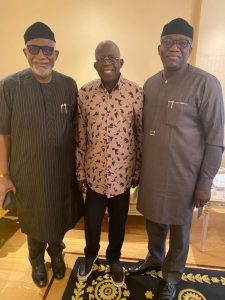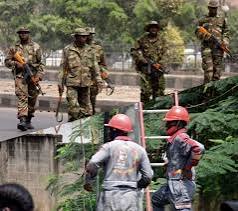2023: The costly mistake of Yoruba politicians

2023: The costly mistake of Yoruba politicians
 By Musbahu El-Yakub
By Musbahu El-Yakub
I love the South West. My young adult children call themselves Lagosians. They were born and raised in their formative years in Lagos. Their best friends are young Nigerians from all over the country that they grew up with, played and schooled together in Lagos.
In about two and a half decades I watched Lagos lead the stride of reasonable development in the South West and the country. And I wish the other legacy regions of the North, the East and the Mid-West will learn a thing a two on politics and economics of development from the SW.
But what amuses me is when I hear Southwesterners pride themselves as being ‘politically sophisticated’. I think that is so far away from reality.
…
The several Constitutional Conferences prior to Independence and the Censuses, pre- and post-independence gave political and numerical advantages to the North. I actually had cause to write elsewhere that but for the ‘twenty-five percent of two-thirds’ clause in our Constitution, the North can ‘singlehandedly’ produce a president without the rest of the country. Yet, during the first republic, the political icon of the Southwest in the person of Chief Awolowo refused to workout an alliance with the North. That cost him the seat of either the PM or the President. In addition, his dispute with Chief Akintola caused so much mayhem during the ‘wetie’ crises that it is considered one of the causes of the truncation of the first republic by the boys in khaki.
In the second republic, Chief Awolowo, as the arrowhead of Southwestern politics still picked an Easterner as his runningmate in the elections of 1979. He lost, unsprisingly. By the time he changed his style in 1983, it was too late for him.
In the short-lived third republic, only the banning of Shehu Yar’adua of the SDP and Shinkafi and Adamu Ciroma, both of NRC, paved the way for Chief MKO Abiola. With the subsequent annulment of the election by the Babangida military administration, the Southwest had no political response beyond semi-militant antigoverment resistance.
When it finally mattered that the khaki (now) men lifted ban on politics, the Bola Iges and Olu Falaes could only build a party that was enclosed in the Southwest. Even as the rest of the country (read: the North) considered it fair to elect a Southwesterner as president, as a ‘compensation’ for the annulment, the Iges and Falaes couldn’t provide or engage in an inclusive political leadership. Obasanjo, a person then in the heart of Northermers, got the support he needed and was elected president.
The upcoming party primary contest between Asiwaju Bola Ahmed Tinubu and Professor Yomi Osinbajo is an indicator that Southwest politicians aren’t the sophisticated politicians they like to think or portray they are. The intra-Southwest contest will hurt the two candidates as well as the put a lie to the political unity of the region.
(A roadside analyst must ask, why then doesn’t an intra-Northern contest of two candidates hurt the Northerners? Simple. The North is big. In a general contest of more than two candidates, any candidate that gets half the North can win the presidency if they fight well in the South).
The Southeast might be the beneficiary of the political partitioning of the Southwest for one possible reason: Some pro-rotation guys in APC, the North and the Presidency might just think ‘look, the Southwest has had a shot at the presidency in this dispensation. If we have to be fair, we should support someone from the Southeast’. And those guys will then play a politics the North knows how to play very well: They will determine which Southeasterner they are comfortable with and support him.
The Southwest isn’t seeing this!

